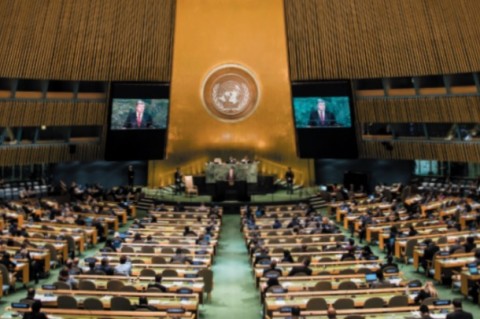
This article originally ran in The Hill Times.
Worldwide, countries lose billions of dollars in revenue to tax avoidance. This is money that could be used for life-saving public services, such as healthcare and education, and investments in climate action. Instead, the ultra-wealthy and multinational corporations abuse the weaknesses of our current global tax rules and the rest of us are forced to foot the bill.
Our current international tax system is rooted in unfairness - and it is time for a change. The solution lies in the worldwide push towards a UN Tax Convention. Last year, led by the Africa Group and the G77, countries from the Global South successfully triggered negotiations for new global tax rules at the UN. This is historic - it is the first time that all UN Member States, not just those in the G20 or OECD, have been able to meaningfully discuss international tax cooperation on an equal footing.
On August 16th, following three weeks of discussion at the UN in New York, countries overwhelmingly approved the Terms of Reference to frame the negotiations of the convention, with 110 votes in favour, 8 against, and 44 abstentions. The terms mark an incredible step forward for tax fairness. The terms reflect Global South and civil society demands with the inclusion of a fair allocation of taxing rights, taxation which supports sustainable development, addressing illicit financial flows, and taxing the ultra-wealthy.
Now comes the problem: Canada was one of only eight countries which voted against the final terms of reference for this UN process. We must do better.
Disappointingly, our Canadian delegates consistently presented roadblocks throughout the process, pushing back against basic text seeking to improve international tax cooperation and the global equity it supports.
Canada’s many objections included opposing the establishment of a progressive international tax system. Not only is progressivity an essential part of addressing inequality and ensuring fairness in tax collection, but language on tax progressivity has already been adopted by consensus at the UN as part of the Addis Ababa Action Agenda to finance sustainable development. Canada’s strange opposition also sits in stark contrast to the current government’s stated objectives at home. Canada’s Budget 2024 credits the growing progressivity of our domestic tax system with making the country a place where everyone can secure a better future.
Canadian negotiators also consistently called for a prerequisite of “complementarity” with other forums. On the face of it, it makes sense for the UN tax convention to take into consideration the work done at forums like the OECD’s Framework on Base Erosion and Profit Shifting. However, much of the Global South and civil society were excluded from meaningful participation in the OECD negotiations which took place behind closed doors. There must be an open discussion about the value of this work during the UN tax negotiations rather than forcing all countries to accept the OECD’s tax policies as a package - tax policies which have not delivered on their promises. The UN is the right forum to air these concerns and build an effective and just international tax system.
Canada can still change its position and act as a leader for inclusive, effective international tax cooperation.
Our first opportunity will be this fall, as the finalized terms of reference for the UN Tax Convention are tabled for adoption by the UN General Assembly. Our negotiators need to know that we are watching, and we expect Canada to follow the same principles of tax fairness that they espouse at home, where our most recent federal budget contained a full chapter on “Tax Fairness for Every Generation.”
Following the adoption, countries will begin the negotiations for the UN Tax Convention, which will conclude in mid-2027, where we expect all countries to demonstrate their commitment to international tax cooperation.
The UN Tax Convention is a long-awaited and promising process that can finally deliver inclusive and effective international tax cooperation. The vast majority of countries support it; Canada needs to stop standing in the way.
